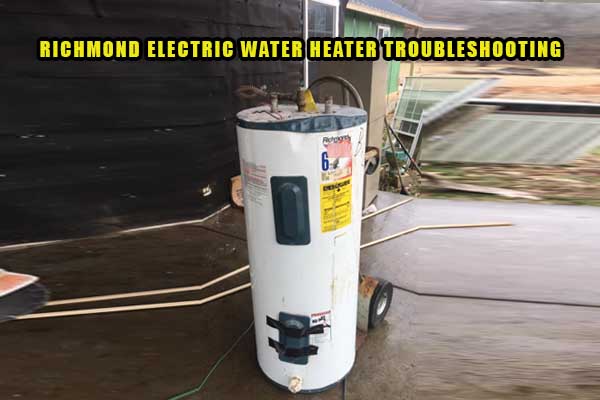The main problems we’ll discuss in this comprehensive Richmond electric water heater troubleshooting guide are:
- No Hot Water Or Not Enough Hot Water
- Overheating Water
- Rumbling Noise
- Smelly Water
- Popping Noise From Relief Valve
- Rattling Noise When Using Water
- Temperature Won’t Exceed 140°F
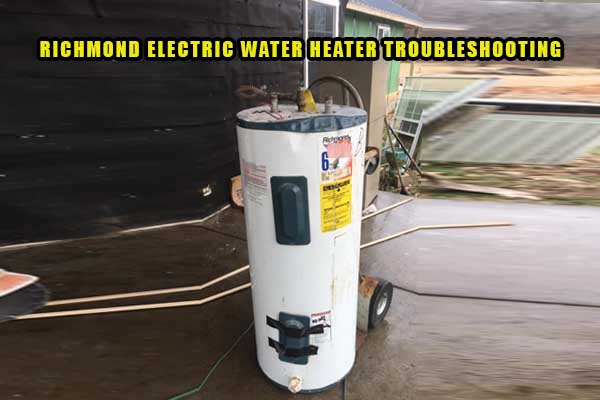
We won’t leave you high and dry by just discussing the issues in detail but we’ll also provide their solutions. So, let’s dive right in!
Table of Contents
- Richmond Electric Water Heater Troubleshooting [A Complete Guide]
- 1. No Hot Water Or Not Enough Hot Water
- 2. Overheating Water
- 3. Rumbling Noise
- 4. Smelly Water
- 5. Popping Noise From Relief Valve
- 6. Rattling Noise When Using Water
- 7. Temperature Won’t Exceed 140°F
- How To Maintain Richmond Electric Water Heaters
- FAQs:
- Is it safe to set the temperature of the heater at 155°F?
- How do you know if the heating element in Richmond electric heaters is on?
- What does a mixing valve do?
- What causes condensation in Richmond electric heaters?
- Is it a good idea to install the heater outdoors?
- What is the difference between upper and lower thermostats in Richmond electric water heaters?
- Conclusion
Richmond Electric Water Heater Troubleshooting [A Complete Guide]
We’ll discuss all the common problems you can face when you’re using a Richmond electric water heater in this section. Keep in mind that the mechanism of gas and electric water heaters is different.
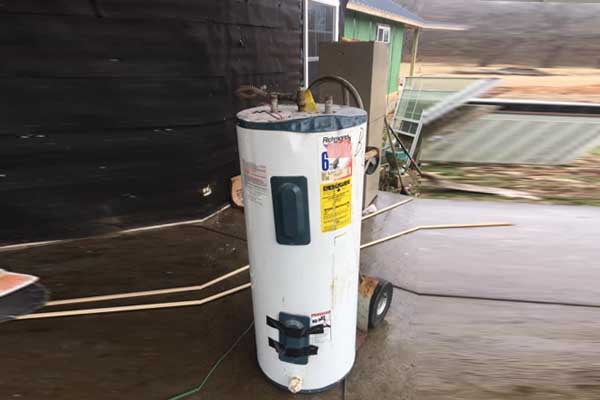
Heating elements are used to heat the water in electric heathers whereas a burner is used in gas water heaters. So, if you’re using a gas heater instead, check out our guide on how to troubleshoot Richmond gas water heater to learn all about it.
1. No Hot Water Or Not Enough Hot Water
The number one reason behind the water not being hot enough and only warm is when the usage of water is too much compared to the heater’s capacity.
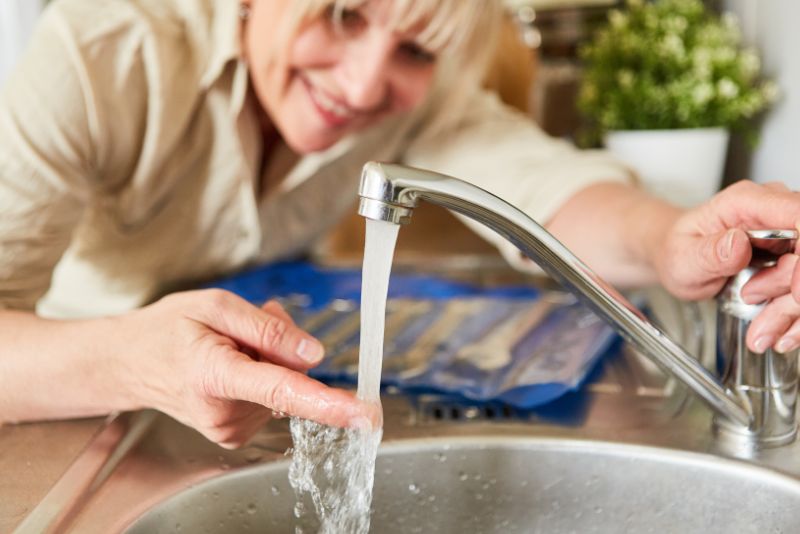
However, there are many other reasons that can cause this issue as well. Here’s a list of the most common ones:
- A blown fuse or tripped circuit breaker.
- The power supply to the electric heater is turned off.
- Setting the thermostat too low.
- The cold water is colder during winter months.
- ECO was tripped.
- Multiple hot water faucets are open.
- Faulty wiring.
- The auto shut-off valve is closed.
Solution:
That was a big list of reasons that can potentially cause no hot water in a Richmond electric water heater. The first thing you need to do is to make sure that the heater has power.
Start by checking the circuit breakers and fuses. If the circuit breakers were tripped, reset them and replace the fuses if they were blown. Ensure that the electrical system is okay and the unit has power.
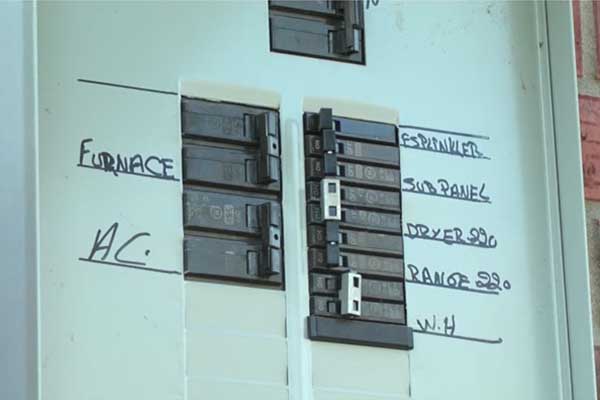
The next thing you should check is whether you’re excessive hot water. If you are, then just turn off the heater for a while. When the heater has had some time to recover, it’ll start operating normally again.
Thirdly, check the thermostat and see if you’ve set it too low. In that case, turn it up to get sufficient hot water. You can also try turning up the thermostat during the colder months to get hot water. Make sure that you’re using mixing valves to avoid scalding in those situations.
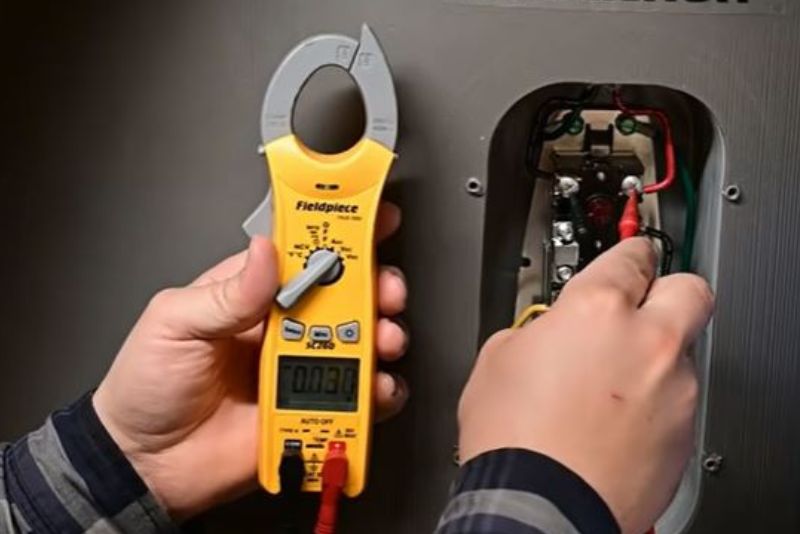
When the ECO gets tripped, you’ll have to reset the Richmond water heater. The ECO is a safety device located above the upper heating element that automatically shuts off power to the heater when the temperature of the water gets too hot.
Thankfully, resetting Richmond water heaters is easy. Here are the steps to do it:
- Turn off the power supply to the heater.
- Open the upper heating element access over.
- Remove the insulation.
- Press the red reset button.
- Put the insulation and access cover back in.

Once you reset the heater, you should get hot water within some time. Make sure you’ve completely filled the tank with water before you turn the heater back on or you may run into more issues later on.
If multiple hot water faucets are open or water is leaking from any of the faucets, turn off all the faucets. The heater will go back to normal and you’ll get hot water in no time.
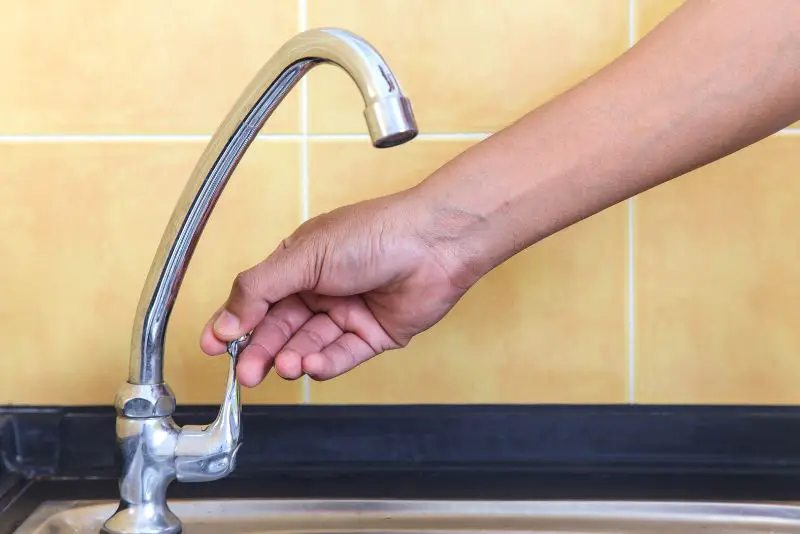
Next, inspect the wiring. The power supply voltage should match the requirements of the heater. Make sure that the electrical connections are secured and properly grounded.
Finally, it’s time to deal with the auto shut-off valve. It’s a self-check device and the heater won’t work when it’s closed. To reopen it, keep rotating it counterclockwise until the position indicator tells you that it is open.
Here’s a quick summary of the potential reasons behind not getting hot water from your heater and the fixes:
2. Overheating Water
This problem is the complete opposite of the last one. While the water didn’t get hot enough in the previous issue, the water is getting too hot this time around.
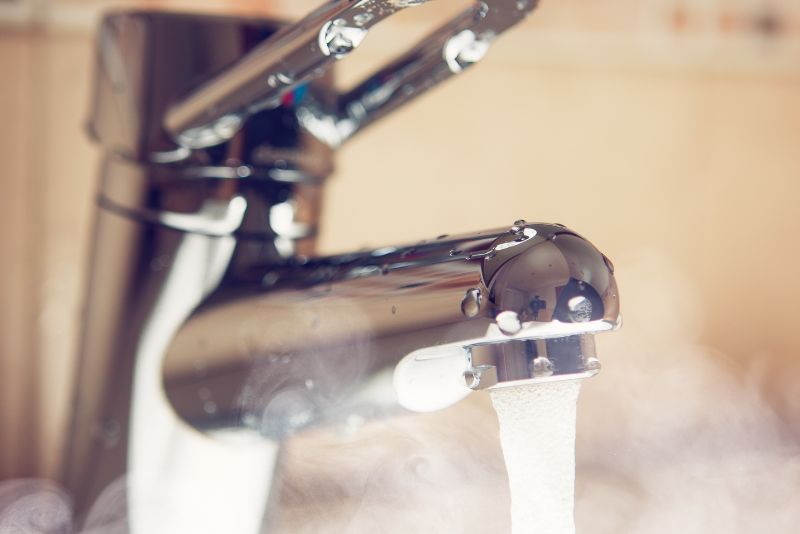
The most common reason behind it is setting the thermostat too high. Besides, a faulty thermostat can also cause this issue.
Solution:
First, check whether you’ve set the thermostat too high. If you have, then adjust the temperature down and you’re good to go. Remember that any temperature above 120°F can cause scalding.
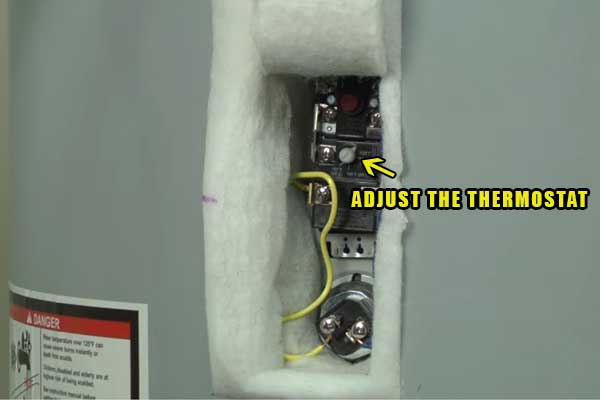
However, if the temperature set on the thermostat seems to be okay, you’ll have to replace the thermostat. In most cases, it’s the upper thermostat that’ll go bad. Here’s how you can replace the thermostat easily:
Step 01 – Turn Off The Power
- Turn off the circuit breakers and make sure that there’s no longer any power supply to the heater.
- Remove the screw attached to the upper heating element access cover and take it off.
- Fold the insulation and expose the thermostat.
Step 02 – Remove The Old Thermostat
- Loosen the screws that secure the wire to the thermostat and pull the wires out.
- Pull the tabs outward at the top of the thermostat bracket to release the thermostat.
- Slide the thermostat up and remove it.
Step 03 – Install The New Thermostat
- Place the new thermostat in place of the old one.
- Make sure it fits firmly behind the tabs and against the tank.
- Reattach the wires to the new thermostat and tighten them.
- Fold the insulation back and close the upper element access cover by tightening the screw.
That’s how you can easily replace the thermostat. When you’re done, fill the tank with water and turn the power supply back on. Hopefully, that’ll take care of the overheating water issue.
If the issue still persists, you have no option but to hire a qualified technician to look at it and help you out.
Here are all the reasons behind overheating water and their fixes at a quick glance:
3. Rumbling Noise
The most common culprit behind getting rumbling noise in your Richmond electric water heater is the build-up of scale.
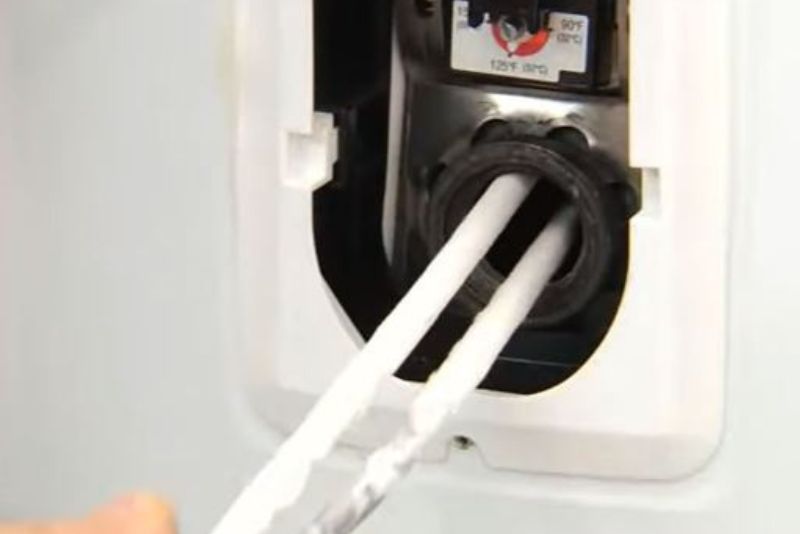
It happens due to a lack of maintenance and too much sediment around the heating element.
Solution:
The solution is simple- you have to remove the heating elements from the heater and clean them. It’s pretty much like replacing the thermostat but there are only a couple of extra steps.
Keep in mind that you must drain the tank before you remove the heating element. If you want to remove the upper heating element, draining the tank a little below its level is enough. The same goes for the lower heating element.
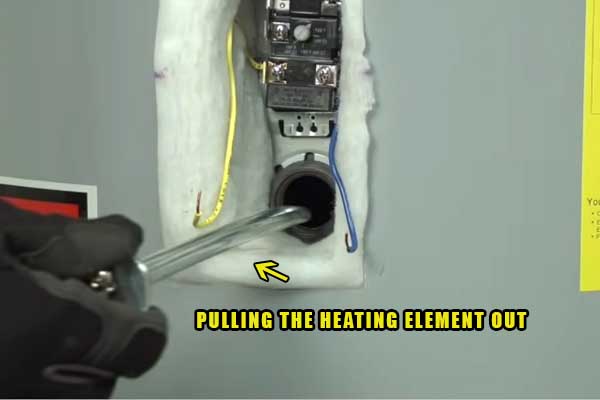
As we’re dealing with sediment build-up here, it’s a good idea to drain the tank all the way so that the tank gets clean as well. We’ll remove and clean both the upper and lower heating element to solve this issue.
After removing the access cover and the insulation, you’ll find a couple of screws at the bottom that secure the heating element to the wires. Loosen these screws and disconnect the heating element from the wires.
Then, unscrew the heating element with a heating element socket. Pull it out of the tank. Repeat the process for the lower heating element and get it out. When you have both heating elements on your hand, it’s time to clean them.
Dip the heating elements in a descaling solution for a few minutes. Then, use a piece of cloth or rag to dry them.
Finally, you can use a brush to get rid of all the remaining dirt in them. When they’re clean, put them back in, and hopefully, the rumbling noise will go away.
Here’s a quick reminder of how to deal with the rumbling noise issue:
4. Smelly Water
Another common issue with Richmond electric water heaters is that the water smells like rotten eggs.
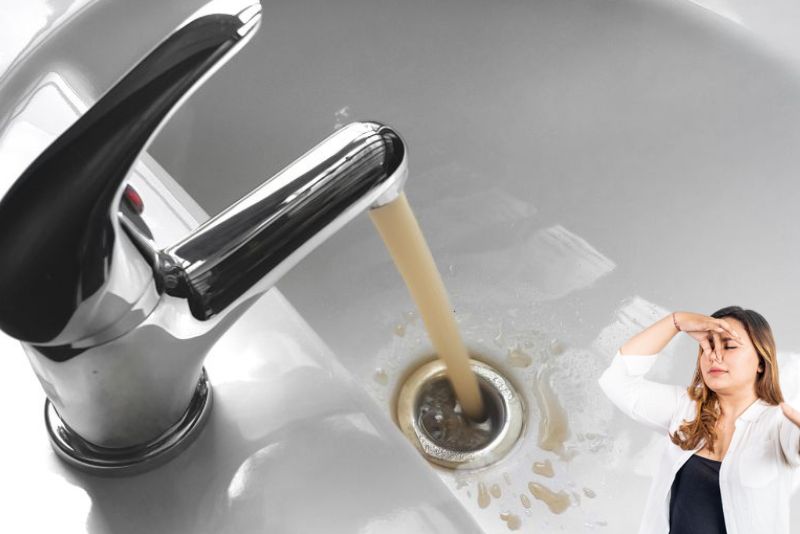
It happens when there is too much bacteria and the amount of sulfate in the water is also high.
Solution:
A quick way to solve this problem is to chlorinate the water supply and that’ll minimize the bad smell by a large degree. You can also turn up the thermostat to more than 140°F and that’ll reduce the growth of bacteria. But remember that such a high temperature can cause scalding. So, proceed with caution.
Here’s a quick summary of how to get rid of the rotten eggs smell from your Richmond electric water heater:
5. Popping Noise From Relief Valve
Hearing a popping or draining noise from the relief valve is a serious issue that indicates an excessive build-up of pressure. You should not take this issue lightly as it’s not something that happens normally.
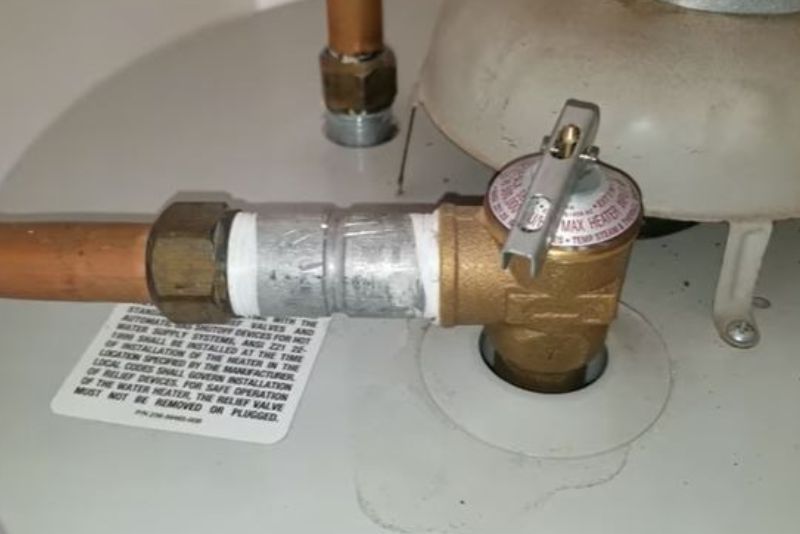
This problem doesn’t occur in open water systems as there’s no buildup of pressure there. But in closed water systems that require a thermal expansion tank, it occurs frequently.
If a check valve exists in the cold water inlet line, you can be sure that you have a closed water system.
Solution:
As this issue requires immediate attention, we recommend taking the help of a qualified technician here. He’ll be able to figure out what’s causing the issue here and fix it. Keep in mind that resetting the relief valve won’t solve the problem here.
Here’s a quick reminder of how you should approach the popping noise from the relief valve issue:
6. Rattling Noise When Using Water
You may be alarmed to hear a rattling noise when you use the water from your water heater. It happens when heat trap fittings are installed in the cold and hot water lines and they’re operational.
Solution:
Heat traps are installed to increase the energy efficiency of your water heaters. There is no correction needed here as it’s a normal part of the operation of heat traps. That noise makes you get hot water quicker.
Hopefully, the above picture will remind you that you don’t need to do anything if you hear a rattling noise during periods of water usage.
7. Temperature Won’t Exceed 140°F
If you can’t set the temperature beyond 140°F, it’s because the keypad is locked. Keep in mind that anything above 120°F can cause scalding. In fact, setting the temperature to 140°F can cause a serious burn in less than 5 seconds if it comes into contact with your skin.
Solution:
While the keypad is locked for good reason, you can easily unlock it and set the thermostat to your desired temperature. Press both the arrow keys on the keypad together and hold them for 3 seconds to unlock the heater.
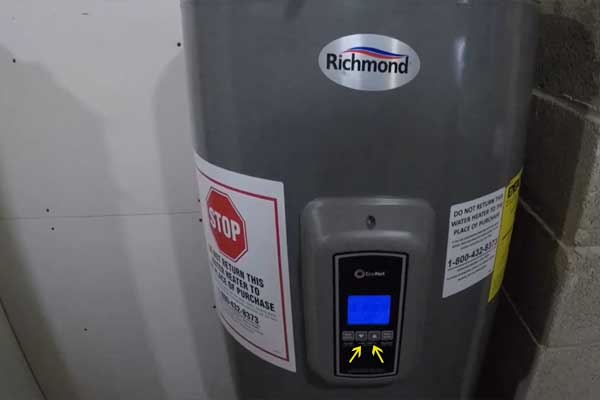
Hopefully, the above picture will help you out. If you do it again, you can lock it as well. You can lock and unlock the keypad times as needed by using this method.
Here’s a quick summary of how to increase the temperature in your water heater when it won’t exceed 140°F:
How To Maintain Richmond Electric Water Heaters
The proper maintenance of your electric water heaters will keep the problems at bay. With a little bit of initiative and a proactive stance, you can ensure the long-term health and functionality of your heater. Here are some tips to help you out:
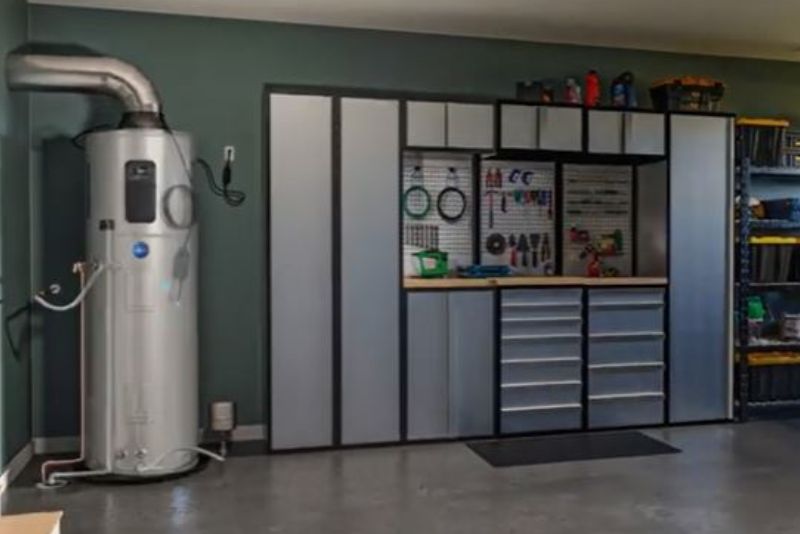
- Inspect the heating element, wiring, and operational controls of the heater at least once a year. If you find any issues with them, take corrective actions immediately.
- Lift and release the lever handle of the T&P valve once a year to make sure that the valve is operating freely.
- Drain a few quarts of water from the tank at regular intervals to get rid of any sediment build-up in the tank. It’s especially important if you live in an area with a lot of hard water.
- Inspect the anode rod at least twice a year and be prepared to replace it when 6 inches or more of the core wire is exposed. The cold water line should be off when you remove the anode rod.
- If you plan to shut down the heater for an extended period, drain the water from the piping to prevent them from freezing. Turn the power off as well to stop the build-up of hydrogen gas.
Note: You might have a Richmond gas water heater and face an issue with your heater gas valve. Then it will be helpful to read our guide on how to fix Richmond water heater gas valve issues.
FAQs:
Is it safe to set the temperature of the heater at 155°F?
No, you shouldn’t increase the heater temperature to such a high number. Setting your heater to a temperature of 155°F can cause a serious burn or injury in less than one second.
How do you know if the heating element in Richmond electric heaters is on?
The easiest way to know if the heating element is on is to look at the indicator of your water heater. If it’s blinking, that means the heating element is on.
What does a mixing valve do?
The mixing valve is a great tool to prevent scalding as it reduces the overall temperature of the water by mixing hot and cold water. Eventually, the temperature of the water goes down when it reaches the faucet.
What causes condensation in Richmond electric heaters?
It’s normal to see condensation when the tank is filled with water for the first time or when the water coming from the cold supply line is too cold. But if it doesn’t disappear when the water is heated, check the pipes for leaks.
Is it a good idea to install the heater outdoors?
You should do everything you can to make sure that the heater and water lines are protected from freezing temperatures. Installing them outdoors only increases the chances of freezing. That’s why you shouldn’t do it.
What is the difference between upper and lower thermostats in Richmond electric water heaters?
The lower thermostat controls the lower heating element and fires it up when the temperature is low. The upper thermostat controls the upper heating element and turns it off when the temperature is high.
Conclusion
We’ve discussed all the major issues you may face with your electric water heater in this Richmond electric water heater troubleshooting guide. You also know the solutions to each of the problems.
Hopefully, you can easily find out what’s causing the problem in your heater and fix it. However, if there’s something we haven’t discussed or you have any questions about Richmond electric heaters, leave a comment below.
